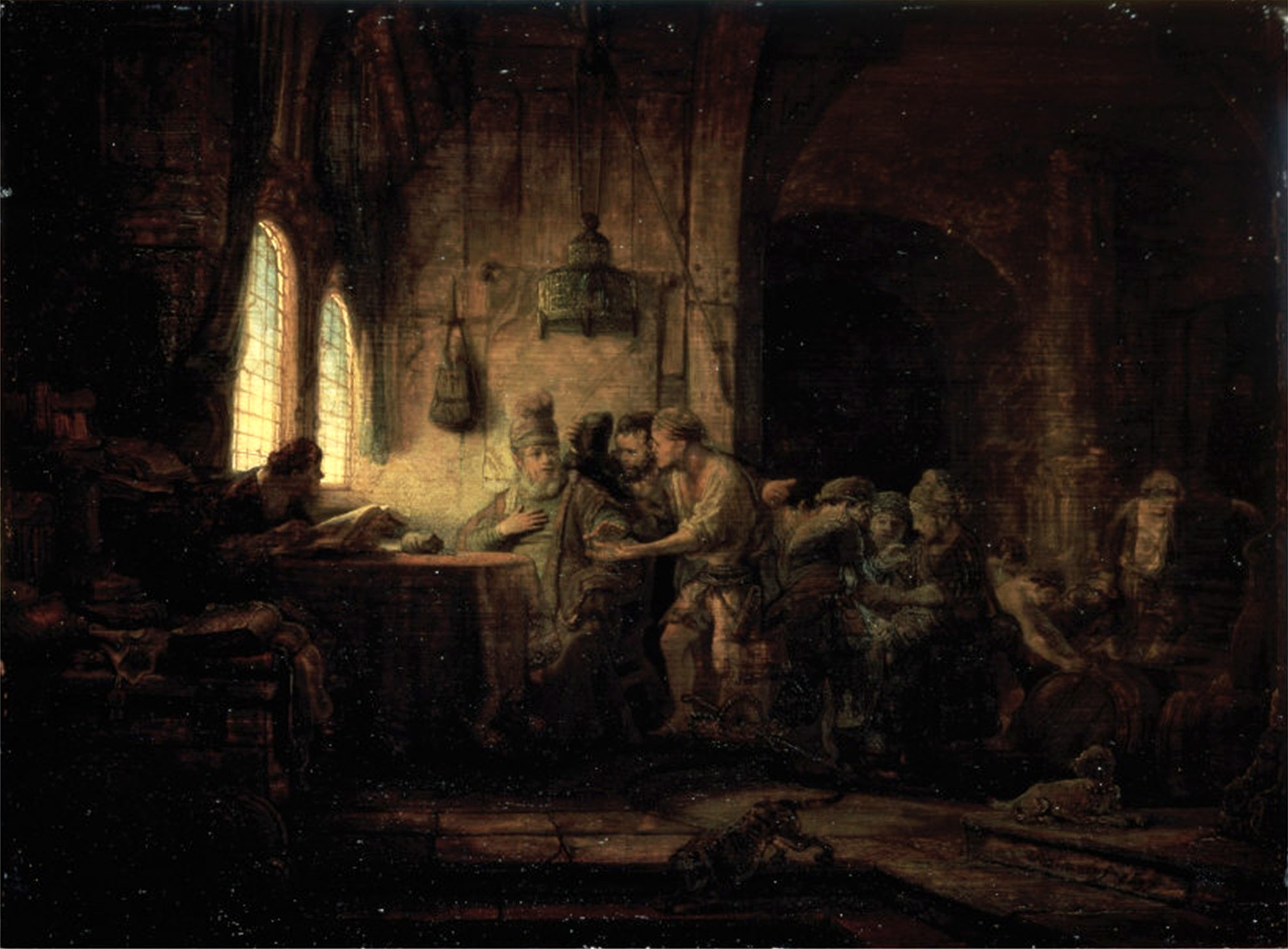 If Pope Francis were to announce that next week, Sunday, September 28, all Catholics around the world didn’t have to go to Mass, how would you feel about that? How many, do you think, would go? How many would ‘take advantage’ of this permission?
If Pope Francis were to announce that next week, Sunday, September 28, all Catholics around the world didn’t have to go to Mass, how would you feel about that? How many, do you think, would go? How many would ‘take advantage’ of this permission?
And then if the pope announced that all Catholics who go to Mass in two weeks, Sunday, October 5, will get a free iPhone 6, how would you feel about this one? How many, do you think, would go to Mass now? By the way, you’d have to come on time, participate, and not leave early!
Our answers to these questions say a lot about who we are and the maturity of our faith.
One important idea we can glean from today’s gospel is that we have to move from a relationship with God that’s like a contract to a family relationship.
Those workers in the parable who began work early do so for pay. They only serve the owner because they’re going to get something back. More work = more pay. Less work = less pay. Why? Because it’s a job. Their attitude is: I get it done with because I want to get paid. So what’s the point in working all day long when I can get the same thing for working less? That’s why they’re jealous of those workers who start work late. This mentality works for a job.
But this idea is horrible for a family relationship, one of love. For example, if a husband were to say, “Ahh, my wedding anniversary is tomorrow, I guess I’ve got to buy flowers for the wife, otherwise she’ll be on my case,” he’d be treating his marriage like a job. The same tragedy would happen if we were to work longer hours not for love of our family, but simply because someone’s got to do it. It’s like children getting their chores done just to get their allowance, and not caring about their parents.
Do we have a bit of a contractual relationship with God? Is it possible that we come to Mass not so much out of love, but simply because it’s a moral obligation? We think: I just want to get into heaven; hopefully I’ll get something out of it; maybe my kids will get some message from it.
Now moral obligations are good. (And it is a grave moral obligation to go to Mass every Sunday, and not even the Pope can change this divine law, which is the third commandment, “Remember the Sabbath day, to keep it holy.”) We need moral laws because we need clarity and need to know the minimum.
If I were to walk into our school here and tell our kids, “Hey kids, you don’t have to do homework today, or go to school every day. Just do it when you feel like it,” the teachers and parents would shoot me. If I were to tell children only to say ‘Please’ and ‘Thank you’ when they felt like it, it’d be a disaster. We teach our children that these actions are obligations because they’re something so important that when neglect them, everyone suffers. We all start out being polite and apologizing because our parents tell us to, but we learn slowly through experience that there’s a deeper reason: without kindness and forgiveness, relationships would be horrible. Children start out apologizing grudgingly, looking down at the floor (as if they’re apologizing to the carpet), but this builds good habits. It’s the same with God. We start out with obligations because they build good habits. But it’s got to go deeper.
Is God a police officer for us? Someone we know is there, but we avoid Him, try not to get into trouble with Him? Is He a genie? Someone we call on when we need help and then put Him back into His bottle? That we only talk with on Sunday or when we have time? The truth is God is our Father, and belongs with us at home, when we go to bed, when we wake up, when we drive, at work, when we eat, watch TV, are on the computer, when we study, play sports, etc. We don’t just keep the commandments because they’re commandments, but we keep them because we want to love our Father and please Him. We don’t just work for pay. For us, it’s a joy to work in our Father’s vineyard. Those workers in the parable who started early didn’t realize that simply to work in the Lord’s vineyard is itself a reward!
I didn’t become a priest to get anything out of it. I became a priest because I love Jesus and want to serve Him. For me, it’s a joy to come to Mass! At St. Joseph’s Seminary in New York, we celebrated Mass every day, which makes sense because our life revolves around the Eucharist. But, on some special occasions, we would have Mass twice on Saturday, once in the morning, and then an anticipatory Mass that “counted” for Sunday. Because we assisted at Mass Saturday evening, we didn’t “have to” go on Sunday. But this never struck me as good. The point of assisting at Mass is not simply fulfill the Sunday obligation. The deeper reality is that the Eucharist is our daily bread, and so I would still assist at Mass on Sunday, even though it was the same Mass as Saturday night. I love going to Mass.
If we feel that we have a bit of a contractual relationship with God, it’s not hard to improve. All we have to do is decide to continue to do the right thing but for better reasons. It’s as simple as saying, “You know, I’m going to start coming to Mass out of love.” We can apply the same change to our morning and night prayers. When we wake up or just before going to bed, let’s not just get our prayers over and done with, without thinking or meaning the words. No, let’s realize we’re conversing with our Father.
God gives us something better than in iPhone 6 every time we come to Mass. He gives us Himself. Let’s not come to fulfill a contract, let’s come to grow in a relationship.
